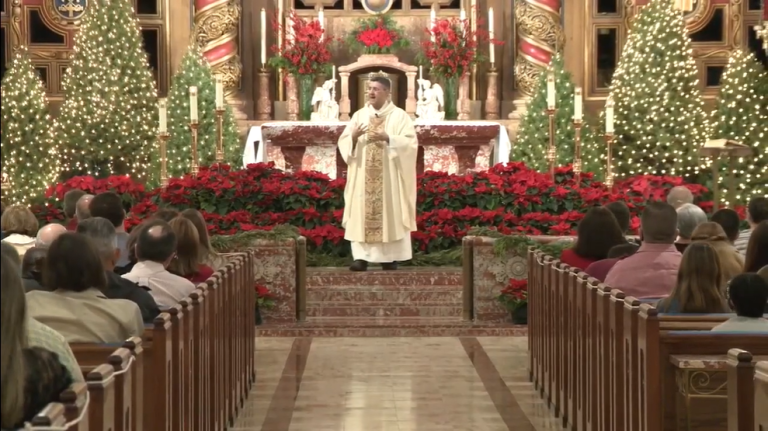June is the month for celebrating fathers (Note to self: Father’s Day is June 16th!). We grow up hearing that the model for all fathers is St. Joseph, and this is true. But, what can we learn from a man with no recorded words? Let’s take a closer look at the husband of Mary and the father of Jesus.
The most reliable sources of information on the life of Joseph come from the Gospels of Matthew and Luke. There we read that Joseph was a descendant of David (cf. Lk 2:4), from the tribe of Judah. He was probably born in Bethlehem, since he had to go there for the census (cf. Lk 2:1-5). At some point he moved to Nazareth in Galilee, where he was betrothed to Mary. He was a “carpenter” by trade (cf. Mt 13:55); the Greek word describes a craftsman skilled in all kinds of woodwork and masonry. Jesus was later referred to as a carpenter as well (cf. Mk 6:3), which means that Joseph must have passed on his trade to his son.
While Joseph and Mary were betrothed, Mary was found to be with child (cf. Mt 1:18). At first Joseph decided to quietly break off the engagement, so as not to subject Mary to ridicule. But, then he had a dream of an angel who told him that the child was conceived by the power of the Holy Spirit and not to fear to take Mary as his wife (cf. Mt 1:20-21). He did as the angel of the Lord commanded him (cf. Mt 1:24).
Later, because of the census, Joseph took Mary with him to Bethlehem and it was there where Jesus was born. After the visit of the Magi, Joseph was warned in a dream that Herod sought to kill the child. He fled with his family to Egypt and remained there until Herod’s death (cf. Mt 2:13-15). After this, Joseph settled his family back in Nazareth (cf. Mt 2:23).
Many years later, when Jesus was twelve, Joseph and Mary “looked for Him anxiously” when they lost Jesus on the trip home from Jerusalem, where they were celebrating the Passover. Eventually they found him in the Jerusalem Temple (cf. Lk 2:41-50). When they returned to Nazareth, Jesus was obedient to both his parents, and “increased in wisdom and in stature” under their care (cf. Lk 2:51-52).
What can we learn about Joseph’s character based on all of this?
- Matthew described him as a “just man” (Mt 1:19).
- From his immediate obedience to his many dreams (four in all; cf. Mt 1:20-21; 2:13, 19-20, 22), we can see that Joseph was a man of great faith who possessed a heart open to the slightest promptings of the Lord.
- In the Gospels, Joseph thinks and acts but never speaks. We can take from this that Joseph leads more by example than by words.
- Also, to guide and protect his family through their various travels must have taken great strength and courage. In anxious moments, Joseph never faltered.
- Finally, from our belief in Mary’s perpetual virginity, we can deduce that Joseph was a chaste man and a master over his mind and body.
If only more men were like St. Joseph! On this Father’s Day, let’s pray that fathers will heed his holy example. Let’s pray that Joseph will help us all to be more just, obedient, strong, courageous, and chaste — all the characteristics of a powerful missionary disciple.
Joseph didn’t say much, but he can still teach us quite a lot.
For more on St. Joseph, see my earlier blog post, “St. Joseph and Docility of the Spirit.”




